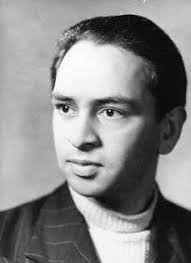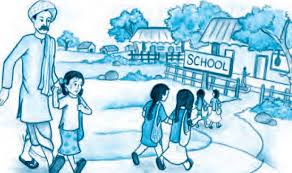Critical Analysis of Untouchable by M. R. Anand
Critical Analysis of Untouchable by M.R. Anand
The untouchable published in 1935 is a short novel (novella) by Mulk Raj Anand in the Indian English literature. He recognised for his depiction of the lives of the poorer castes in traditional Indian society. One of the pioneers of Indo-Anglian fiction, he, together with R. K. Narayan and Raja Rao forms the great (major) trio. He was one of the first India-based writers in English to gain an International readership.
Anand is admired for his novels and short stories; he is noted for the perceptive insight into the lives of the oppressed people and for the analysis of impoverishment, exploitation and misfortune of the oppressed class.
The novel untouchable is the story of a single day in the life of Bakha, a boy of untouchable class. It presents the account of the humiliation and struggle that he and other lower caste people had to go through.
The novel Untouchable is a realistic fiction. Its theme is based on the depiction of misery and plight of the untouchables, their social segregation and reduced existence with customary humiliation. It is written in simplistic style, however, it successfully exposes the contradictions and subordination in the hierarchical society of India. The protagonist of the novel Bakha is an intelligent and hardworking boy but he is an outcast and untouchable. Anand in this novel challenges the rules and barriers made for untouchables and argues for their education.
The novel received a great recognition both domestically and abroad as it highlights the social evils of society and voices for the rights of the untouchables. It forced the educated class in India to think about how the internal caste system of India is preventing its progress and in abroad, authors like E.M. Forster saw a literary and historical significance in the novel.
| Important Links | |
|---|---|
| Theme of love & Sexuality in Kamala Das | An Introduction by Kamala Das |
| Novel Untouchable | Theme of Untouchable |
| Eugene O'Neill | Questions Paper |
| Thoreau : Civil Disobedience | Edward Said Orientalism |
Anand captures the predicament of untouchables and presents the harsh reality before us. We see that they are denied even the basic needs of the life that is water. The novelist is indeed quite powerful in his rendering of the light on the untouchables with his acute observation and the regional language that he adopts. The use of regional language and abuses clearly shows the social realism with which he has presented the Curse of untouchability.
Through a number of instances that occur with Bakha, which starts even with his waking up itself, the novelist has presented the plight of this class. The humiliation that it is subjected to is depicted vividly. We are told that how accidentally once Bakha touched an upper caste Hindu in the market and the person became so infuriated that he abused Bakha by addressing him such words as son of swine, dirty dog and so on.
Everyone present in the situation just saw him getting insulted but no one spoke a single word against it. Bakha was so ashamed. He fell down on his knees and silently listened to all the insults that was targeted towards him. At the last a Muslim tongawallah rescued him from the situation. Bakha was so Shattered by the incident that he burst out into anger, "why are we always abused? Because we are sweepers. Because we touch dung. They hate dung. I hate it to".
Anand also criticizes the people of upper caste in the course of novel. He tries to show how people are using religion as a basis for dividing the society into hierarchical orders and then misuse it for their own benefits.
| See Also | |
|---|---|
| UPSC | Emotional Intelligence |
| PSIR | Important English Literature Questions |
| Morph, Morphemes & Allomorphs | Morphology |
Mulk Raj Anand in the novel through the character of Kali Nath successfully presents the hypocrisy and corruption that some people are engaged in the exploitation of ignorants and the downtrodden.
He shows how KaliNath invites Sohini under ill intentions then turns the blame onto her of polluting him. Through this episode Anand tries to present a harsh reality that not all preachers of religion are morally right at their heart and that we should not welcome blind beliefs and caste discrimination in the name of religion.
The religious theme is also embedded in the novel to the core. In one instance, when Bakha asks a Muslim man for some coal to light his cigarette he does so without any grudges and also uses the same coal which has been used by Bakha. However, a Hindu would not have done. This shows how religion divides the people to a great extent.
When Bakha was slapped by a high-class person, the Muslim merchant is shocked and concerned about him, unlike the Hindu men who are ignorant of these petty but major things. In the incident that happened in market also, Bakha was rescued by a Muslim tongawallah. The compassion Muslim man shows to Bakha gives the novel a relieving factor. There are different similes and metaphors which have been used in the novel freely.
Anand's primary concern was to a lift this lot of people who are socially unaccepted and isolated. By bringing in Mahatma Gandhi's episode Anand has not only provided a solution for the plight of the untouchables in the novel but also highlighted the evil practices that need to be removed from the society.
Gandhi's comments that the predicament of the untouchables is both a moral and the religious issue. He calls "untouchability is the greatest blot on Hinduism" and regards it Satanic to think that anyone in Hinduism as born an untouchable.
Gandhi holds the view that untouchables have to cultivate the habits of cleanliness and be free from unhealthy practices such as drinking liquor and gambling. Gandhi regards All Indians as equal and expresses his desired to be Reborn as an untouchable. Gandhi's words instil a ray of hope in Bakha and other people.
The closing of the novel appropriates bakha's inner conflict between the enthusiasm and his naivitie. This is a consequence of what bakha has experienced during the whole day and its indelible impact upon him.
Bakha's interaction with the poet Iqbal Nath Sarshar and his ideas about the flush toilet system also provide him with some hope for the future. The novelist hints that the situation of this exploited class will undergo a change in the future and they will no more remain exploited in the times to come.
.jpeg)
.jpeg)

.jpeg)
.jpeg)

.jpeg)




Comments
Post a Comment
Your Views and Comments means a lot to us.